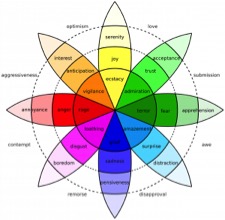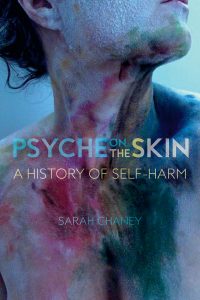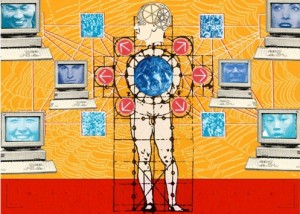Organised by the QMUL Centre for the History of the Emotions and the Australian Research Council Centre of Excellence for the History of Emotions. 19-20 June 2017
Registration is now open! Register on the QMUL e-shop . Registration closes on June 12.
Registration is £65 for unwaged/students/concessions and £90 for waged delegates. There will be a conference dinner on the evening of 19th June on the QMUL campus. This will be a three-course meal with wine included and will cost £37. If you would like to attend the conference dinner please choose the registration option that includes this: £102 for unwaged/students/concessions and £127 for waged delegates.
Download the draft programme: QMUL_Fears and Angers_Draft Programme. This is subject to change.
Accommodation
If you are attending the workshop and planning to stay over in London you might want to consider the following accommodation options:
QMUL Campus Accommodation: on site at Mile End, 3* very reasonably priced accommodation
Goodenough Club: centrally located, 4* accommodation.
Doctor in the House: accommodation agency for professionals
The Royal Foundation of St Katherine: ex-medieval church specialty lodgings in East London.
QMUL also provides a longer list of local hotels.
Please note that these options are provided for your information and are not endorsed by us.
Fears and Angers: Historical and Contemporary Perspectives
19-20 June 2017
Arts Two Building, Mile End Campus
DAY ONE
9.00: Registration Arts Two Foyer
9:30am: Welcome Arts Two Lecture Theatre
9.45-11:15: Keynote Panel Arts Two Lecture Theatre
Sciences of Fear and Anger Today
Sarah Garfinkel (University of Sussex)
W. Gerrod Parrott (Georgetown University)
James Russell (Boston College)
11:15: Tea Break Arts Two Foyer
11.45-1.15 Morning Panel Sessions
Panel 1: Lecture Theatre, Arts Two
Gendered anger
Thomas Dixon (QMUL), ‘The Gender of Anger in Victorian Science and Medicine’
Laura De la Parra (Complutense University of Madrid), ‘Remapping the Madwoman: Multiple Personality Disorder or the Impossibility of an Alternative Femininity in Shirley Jackson’s The Bird’s Nest’
Lorna Fitzsimmons (California State University), ‘Gendered Space and the Management of Caretaker Anger in Major Barbara and Nurses’ Narratives’
Panel 2: 3.16, Arts Two
Fear and anger in late-medieval English writing
Paul Megna (University of Western Australia), ‘Striating Dread in Late-Medieval England’
Clare Davidson (University of Western Australia), ‘Tremulous Arousal and the Natural Physiology of Love’
Andrew Lynch (University of Western Australia), ‘Pity, Anger, Vengeance: an Emotional Nexus in the Alliterative Morte Arthure and The Siege of Jerusalem’
Panel 3: 3.20, Arts Two
Emotional Languages and Grammars
Tania Kouteva (Heinrich-Heine University Düsseldorf and SOAS), ‘Fear and Anger Across Languages’.
Micheline Louis-Courvoisier (University of Geneva), ‘The Semantic Confusion of the Word “inquiétude” in the Eighteenth Century: Between Internal Sensations in Movement and Emotions’.
Seyma Afacan (Max Planck Institute for Human Development), ‘Of Ottoman Nerves amidst Fear and Anger’.
1:15-2.00: Lunch Arts Two Foyer
2-3.30: Early Afternoon Panels
Panel 1: Arts Two Lecture Theatre
Early modern religious fears and angers
Kirk Essary (University of Western Australia), ‘In Proximity to Desperation: Varieties of Fear in Luther’s 95 Theses’
Juliane Engelhardt (University of Copenhagen), ‘Fear, Anger and the Propagation of Pietism in the Danish State in the Early Enlightenment’
Panel 2: 3.16, Arts Two
Nineteenth-Century Theories and Practices of Emotion
Edgar Gerrard Hughes (QMUL), ‘Frenzy, Paroxysm and Rage in Victorian Theories of the Grief’
Paul Gibbard (University of Western Australia), ‘Anger and Emile Zola’s Theory of the Emotions in The Dream (1888)’
Tomoko Nakagawa (University of the Sacred Heart), ‘Literary Representations of “Righteous Anger” in Mansfield Park and Frankenstein’
Panel 3: 3.20, Arts Two
Anxieties
Kibrina Davey (Sheffield Hallam University), ‘”Silence that Dreadful Bell”: Hearing Anxiety in Shakespeare’s Othello’
Christine Doran (Charles Darwin University), ‘Rage and Anxiety in the Split between Freud and Jung’
Julia Bourke (QMUL), ‘Managing Terror in the Medieval Monastery’
3.30-4.00: Tea Break Arts Two Foyer
4.00-5.30: Late Afternoon Panel Sessions
Panel 1: Arts Two Lecture Theatre
Philosophy of Emotions
Csaba Olay (Eötvös Loránd University), ‘Heidegger on Affectivity: Attunement, Moods, and Fear’
Mara-Daria Cojocaru (Munich School of Philsophy), ‘Anger Between Violent and Passionate Disagreement. How Can We Deal With Anger in Situations of Moral and Political Conflict from the Perspective of Philosophical Pragmatism?’
Panel 2: 3.16, Arts Two
Fear of the dark, the Devil, and spirits in early modern Europe
Chair: David Lederer
Abaigéal Warfield (University of Adelaide), ‘“A frightening new report”: The Use of Fear Appeal in Sixteenth-Century Lutheran News Reports’
Eveline Szarka (University of Zurich), ‘Alarming Signs. Spirits, Sins, and Sickness in Early Modern Switzerland’
Charlotte-Rose Millar (University of Queensland), ‘Fear of the Night, the Devil and the Nightmare in Early Modern England’
Panel 3: 3.20, Arts Two
Cinema
Joy McEntee (University of Adelaide), ‘Transphobia and the Camp Psychiatrist in the Movies 1960-1992’
Imke Rajamani (Max Planck Institute for Human Development), ‘Virtuous Anger and Middle-Class Anxieties: The Emotional Politics of the “Angry Young Man” in Popular Indian Cinema’
6.00 Wine reception and Musical Performance Venue TBC
7.00 Conference Dinner Queen’s SCR
DAY TWO
10.00-11.30 Morning Panel Sessions
Panel 1: Arts Two Lecture Theatre
The Long Eighteenth Century
Stephen Cummins, ‘Scruples of Conscience: Excessive Fear of Sin in Seventeenth- and Eighteenth-Century Italy
Lina Minou (Independent Researcher), ‘”Good-Natured Choleric People”: A Moral Debate of the Eighteenth Century’
Laura Rosenthal (University of Maryland), “’Hell Hath No Fury’”: Fear and Anger on the Eighteenth-Century Stage
Panel 2: 3.16, Arts Two
Public executions
Fernando Gil (National Distance Education University, Madrid), ‘The Emotions of the Prisoners Condemned by the Spanish Inquisition: Fear, Anger and Madness in the Old Regime’
Carly Osborn, (University of Adelaide), ‘The Relationship Between Fear and Anger in the Rhetoric and “Repertory of Actions” Repeated in Public Executions and Mob Lynchings in Seventeenth-Century France and England’
Daphne Rozenblatt, ‘Joy in Terror: Emotions in the Criminal Prosecution of Nineteenth-Century Political Violence’ (Max Planck Institute for Human Development)
Panel 3: 3.20, Arts Two
Medical Conditions and Treatments
David Saunders, ‘The Tyranny of the Temporal Lobe: Fear, Anger, and Epilepsy at the Guy’s-Maudsley Neurosurgical Unit, 1951-1968’
Evelien Lemmens, ‘”Demon of Dyspepsia”: Fear and Emotional Indigestion in Britain (1850-1914)’
Hannah Kershaw (London School of Hygiene and Tropical Medicine), ‘Public Health for an “Excessively Worried Public”: Instilling Caution While Quelling Fear Through AIDS Education for the Under 18s, 1983-1987’
11.30-12.00 Tea Break Arts Two Foyer
12.00-1.00 networking
1:00-2.00 pm: Lunch
Arts Two Foyer
2.00-3.30: Early Afternoon Panels
Panel 1: Arts Two Lecture Theatre
20th Century Fears
Benjamin Bland (Royal Holloway, University of London), ‘Angry and Afraid: White Genocide and the Emotional Drivers of Post-War British Fascism’
Anastasia Stouraiti (Goldsmiths, University of London) and Alexander Kazamias (Coventry University), ‘”Patriots Beware!”: Fear and the Visual Culture of Anti-Communism in Post-Civil War Greece’
Matthew Kerry (York University, Canada), ‘Frisking and Fears of Fascism: Theorising Collective Anger, Humiliation and Protest’
Panel 2: 3.16, Arts Two
Political Anger
Diana G. Barnes (University of Queensland), ‘Fear and Anger in Margaret Cavendish’s Life of the Most Illustrious Prince, Duke of Newcastle (1667)’
Paolo Gervasi, ‘Anger as Misshapen Fear. Social and Political Caricature in Literature’
Ildiko Csengei (University of Huddersfield), ‘Coleridge’s Fears in Solitude and the French Invasion Scare in Britain’
Panel 3: 3.20, Arts Two Building
Experiencing Terror
Caterina Albano (Central Saint Martins, University of the Arts London), ‘“What is a Liquid?”’: a critique of fear’
Elisabetta Brighi (University of Westminster), ‘Fear, Anger and Political Violence: The Triangle of Terrorism’
Emily Gibbs (University of Liverpool), ‘Experiencing Terror, Fear and/or Anxiety: Anxieties About Researching “Nuclear Anxiety”’
3.30-4.00: Tea Break Arts Two Foyer
4.00-5.00: Roundtable Arts Two Lecture Theatre
Fears and Angers in History and Science
Sarah Garfinkel (University of Sussex)
W. Gerrod Parrott (Georgetown University)
James Russell (Boston College)
END


